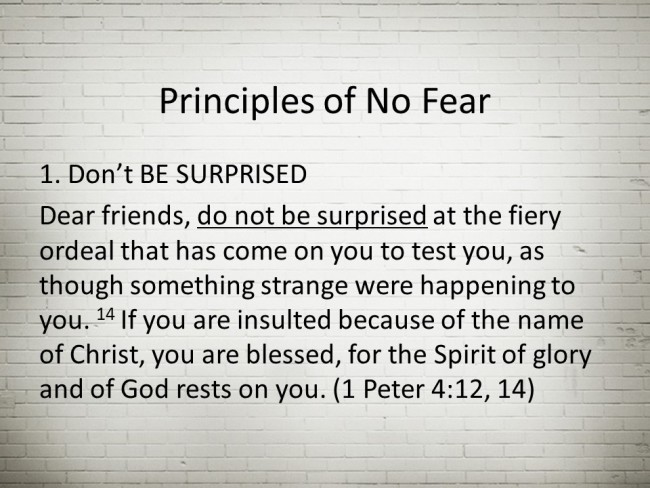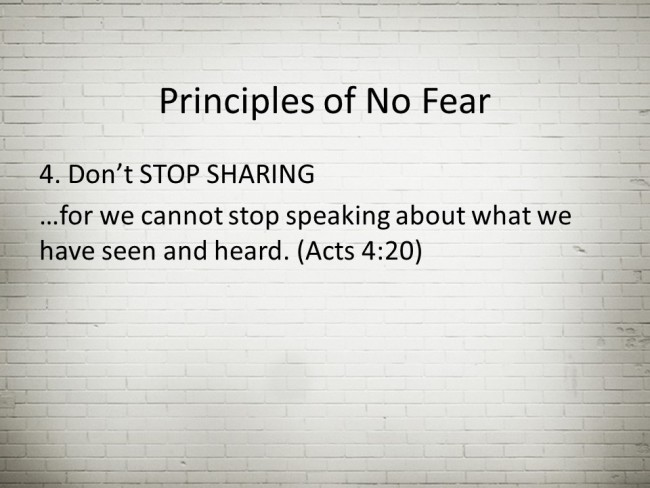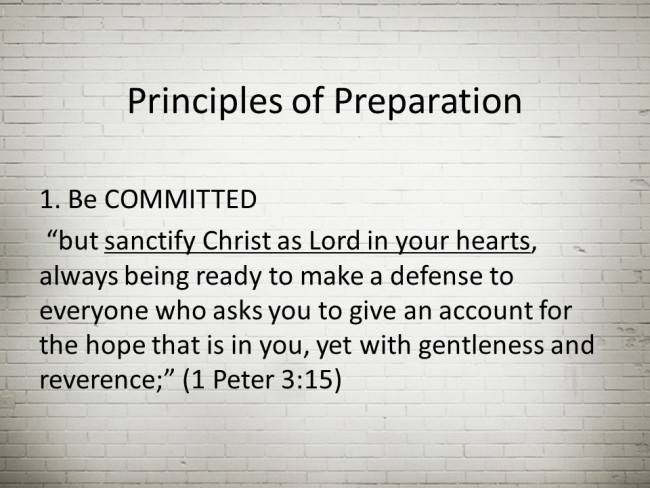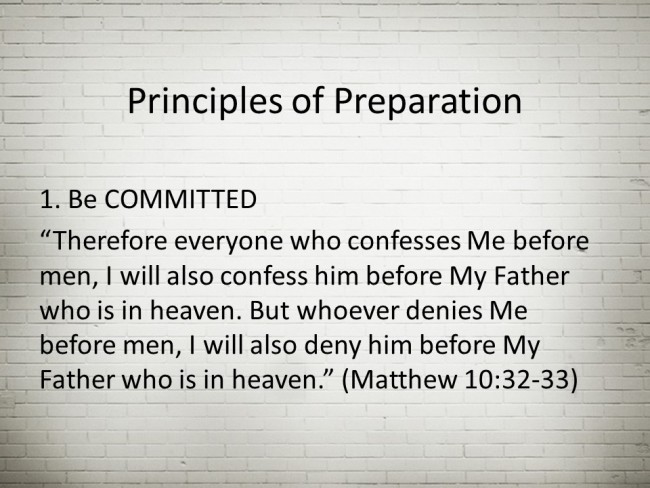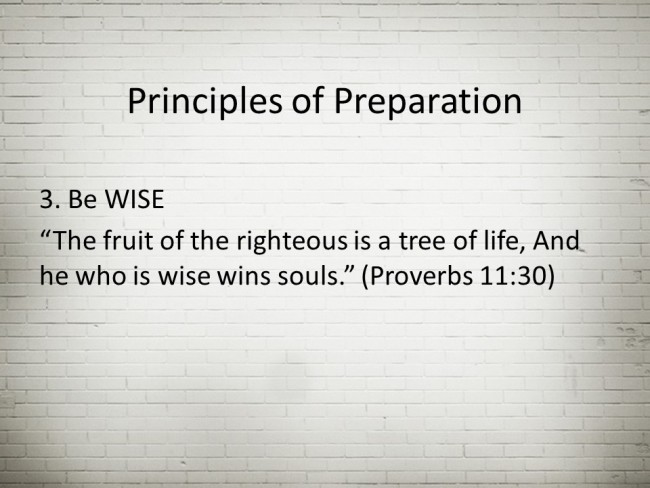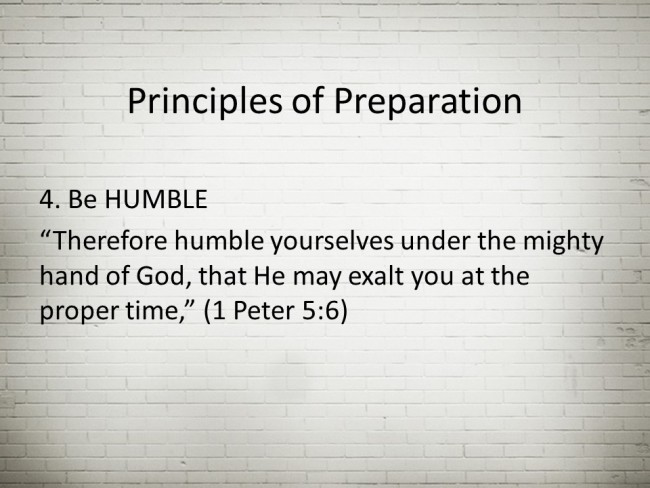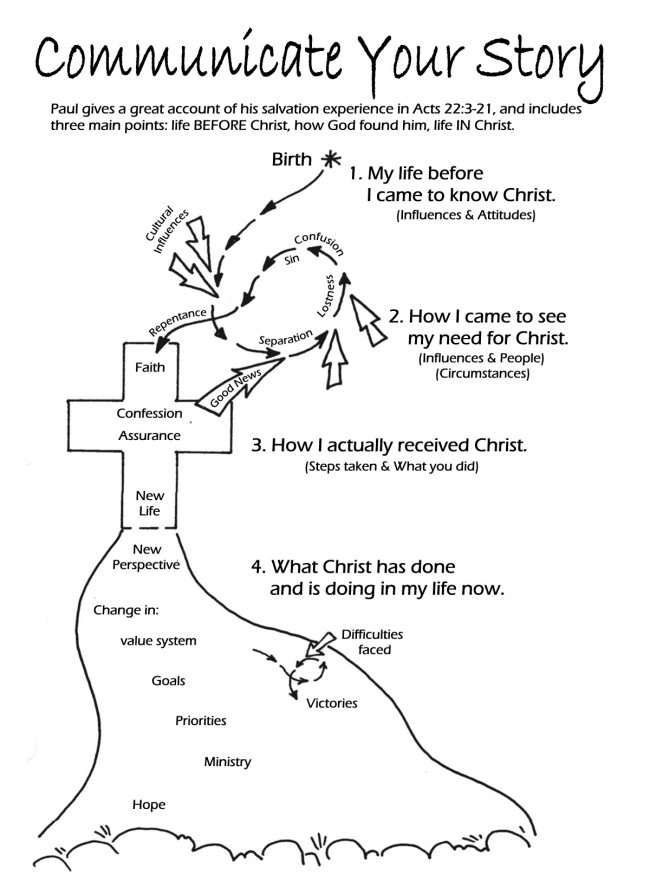This is the final session in the God’s Not Dead series.
While preparation is vital to becoming an effective witness for Christ, at some point we need to step out and start sharing the gospel. You can connect more often and more deeply with people outside of the church. You can become involved in activities or join organizations with diverse participants. You can cultivate a lifestyle of hospitality. You can get involved with people who don’t know the Lord, then they will inevitably see the centrality of Jesus that marks your life.
At first you can defend the existence of God. Remember that knowing God exists is the beginning of faith. Then you can explain how he created the world as well as mankind. This knowledge should result in a desire of people to begin to seek God. This may lead to the opportunity for you to explain the Christian story that is expressed in the gospel. There is no greater privilege than to communicate this message to unbelievers. Second Corinthians 5:20 tells us we are ambassadors for Christ.
Before you can share the gospel, you need to understand it. Here is a good summary, God became man in Jesus Christ. He lived the life we should have lived and died the death we should’ve died, in our place. Three days later he rose from the dead proving that he is the Son of God and offering the gift of salvation to everyone who will repent and believe in him. Let’s look at the key aspects of the summary.
God became man in Jesus Christ. Creator of the universe came to earth in the form of Jesus Christ, which is the greatest mystery of all time. So I’m trying to simply say that Jesus Christ was more than a great teacher or even a prophet, but he claimed to be God himself. Remember the CS Lewis argument of liar, Lord, or lunatic.
He lived the life that we should’ve lived. Jesus perfectly obeyed the moral law of God yet he was without sin. Through disobedience and rebellion we fell into the darkness and grip of sin. Christ’s perfect obedience as a man of God qualified him to represent us before God.
He died the death that we should’ve died, in our place. Because of sin, we deserve punishment. If there is no penalty for breaking God’s laws, then they ceased to be laws and become merely suggestions. Jesus Christ became our substitute by offering his perfect life as a sacrifice for our sins.
Three days later he rose from the dead, proving he is the Son of God. The resurrection of Jesus from the dead verified that he was indeed who he said he was. When people ask how you can know that Jesus Christ is truly the son of God, you can confidently stand on his resurrection as the proof of that claim.
He offers salvation to those who repent and believe in him. The gospel calls us to put our faith in Jesus Christ. Having faith means to trust and obey what he says is true. To repent means to turn from trusting in our own efforts, as well as to be sorry for our sinful ways. As you turn to Christ and trust in him, he promises to give you new life.
Next we need to believe the gospel deeply. Real faith isn’t blind. We have been given overwhelming evidence that God is real and that Jesus Christ is his son. While we don’t claim to have all the answers, we have enough evidence to commit ourselves to believe what God has promised us. We also know that Jesus’ words are true and our sins are forgiven. Christ has paid the price for our sins (Isaiah 53:5). All of the guilt and shame has been removed from us so that we can stand blameless in God sight, as children of God.
By believing the gospel, we experience a promise Jesus gave us, that of the new birth (John 3:7). This is obviously a spiritual rather than a physical birth. We become new on the inside (2 Corinthians 5:17).
When we believe the message, this promised transformation takes place. It doesn’t mean we don’t have struggles, temptations, or setbacks, but we have a new source of strength inside of us. When these truths penetrate our hearts, they shape our speech, our decisions, our emotions, and our motivations.
It is a popular statement, “Preach the gospel, and if necessary, use words.” Make no mistake, it is necessary to use words. It’s like feeding hungry people, and if necessary use food. Is our responsibility and privilege to communicate this message to a lost world around us.
Many times we avoid the responsibility. It all comes down to fear. One of the best ways to overcome the fear of talking about God is to simply start stepping out in faith to initiate conversations. To overcome this obstacle, there is a simple strategy called SALT.
- Start a conversation
- Ask questions
- Listen
- Tell the story
TheGodTest is another a tool with questions to draw out a person’s foundational beliefs, such as their understanding of God, morality, and the meaning of life. Here is a summary:
(check out the teaching / training online).
Mankind has a problem, which is a sin problem that can only be solved with God’s solution. Imagine being sick for more than two years with a mysterious ailment that no doctor could detect. When you finally find out what is wrong, it really is good news. Now they can start treating the real problem. The gospel is like an MRI for the soul that shows the source of people’s individual problems, and the challenges in society that results from their broken relationships with God.
There are countless voices in our culture promising to help us fix our problems. Only within Christianity is security really found, our value and acceptance by God’s rest on Jesus’ perfect life and sacrifice. As we are transformed into new people, we can then confront the problems in our society such as racism, injustice, and poverty.
On a regular basis, tragedy and crisis strike our world. Whether natural disasters such as hurricanes, floods, and tornadoes, or personal tragedy and loss. It is the love and mercy shown by the followers of Jesus that have historically made a huge difference in the lives of those who are hurting. The love and sacrifice shown by believers can help take away the pain and bring real peace and comfort.
As a Christian, you invite others into small groups focused on practical issues, such as marriage, finances, or relationships. As they experience biblical truth practically impacting their lives, they will likely desire to understand the full Christian story. You could also invite them to join in mercy ministries, such as helping the homeless. It is important to identify the talents that God has given to you, and to use them for his glory.
Discussion Questions:
- What are your greatest obstacles toward being a witness for Christ? How can you overcome them?
- What do you most need to become an effective witness: courage, knowledge, wisdom, power?
- How should you pray for God to assist you to gain what you need?
- What opportunities might you be missing where you could be a witness?
Follow Up:
- Read John 3:16–18. Reflect on your life in light of the power of these verses. What do they mean to you? How have you responded in your beliefs and lifestyle?
- Read Matthew 7:16 and Galatians 5:22–23. What traits characterize your life? What do other C and receive from you?
- Make sure to go over the God Test questions in order to better prepare yourself to share the gospel with other people.
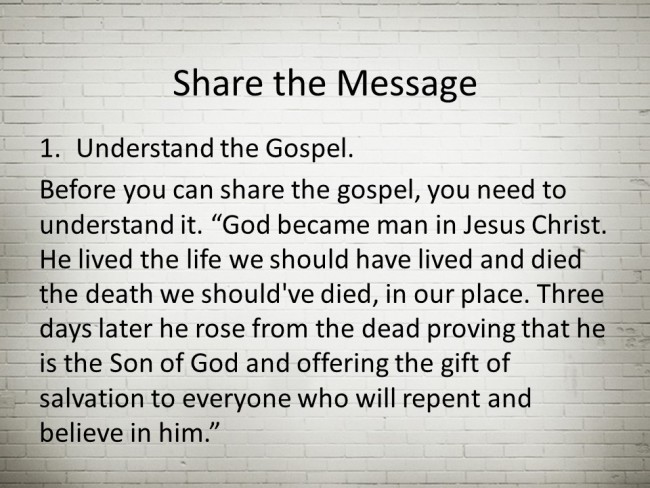
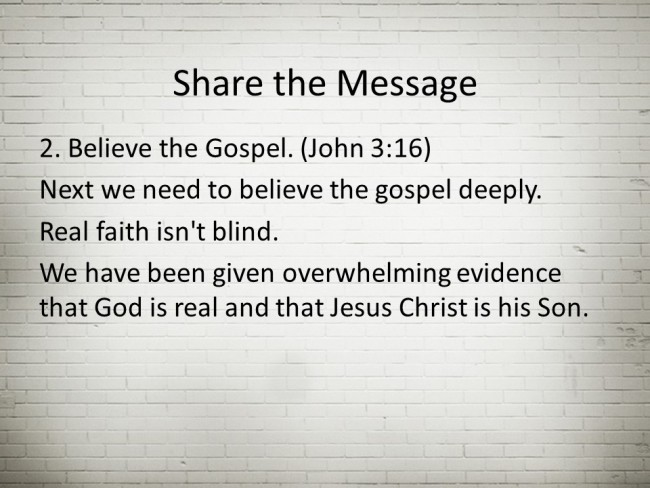
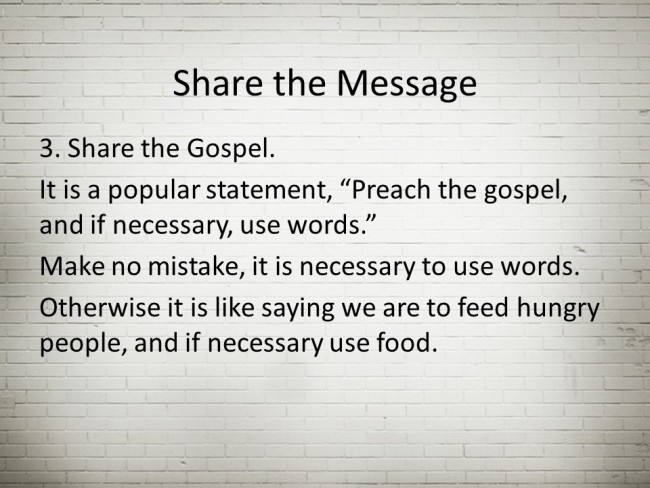
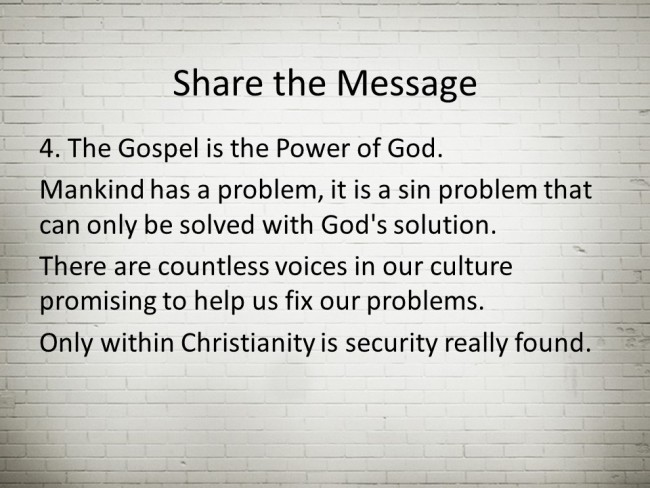
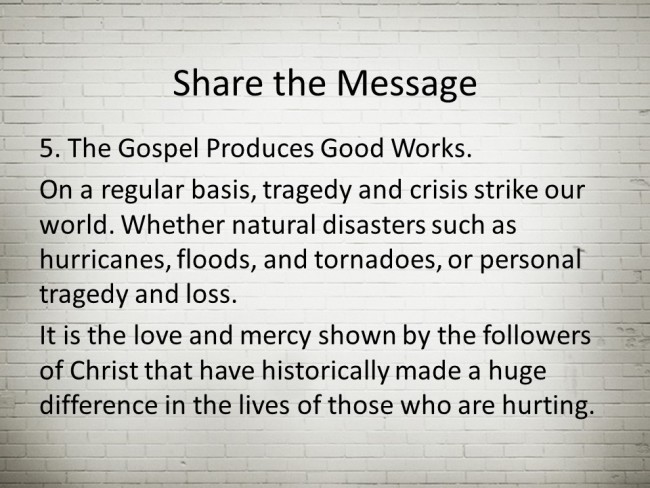
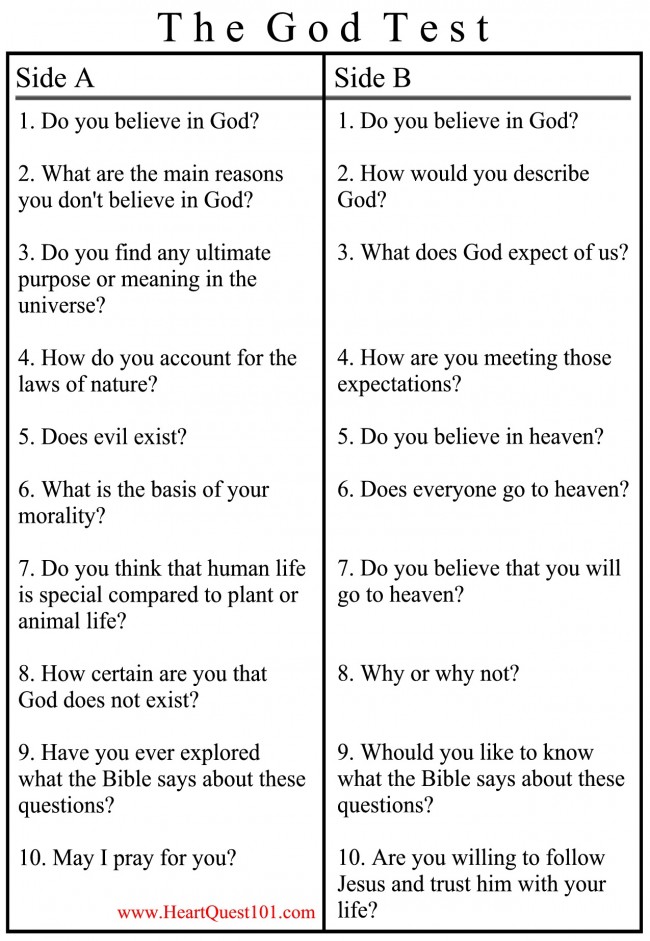
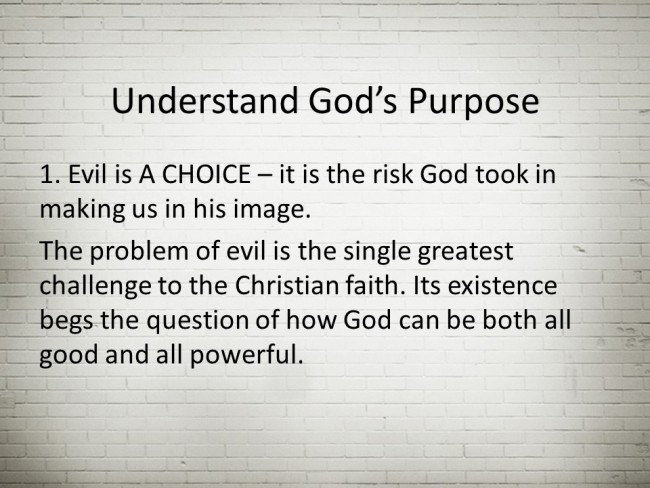
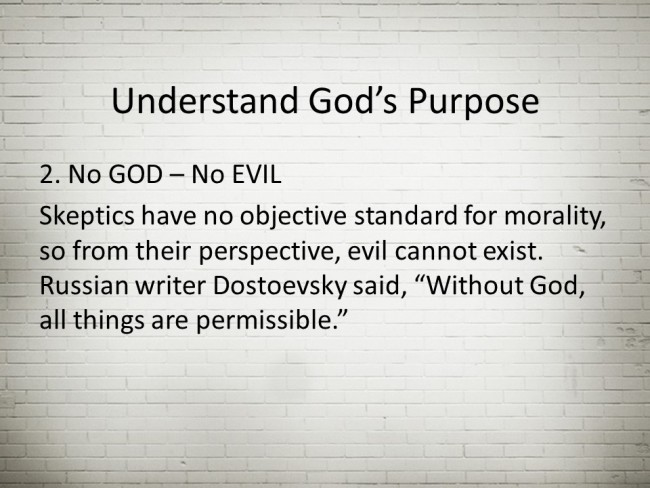

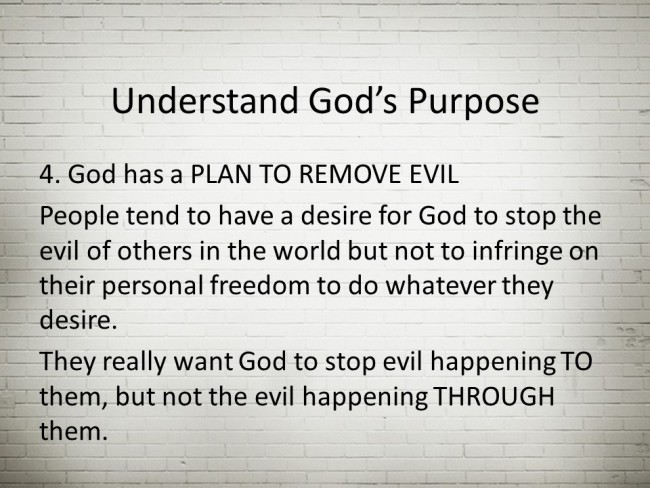

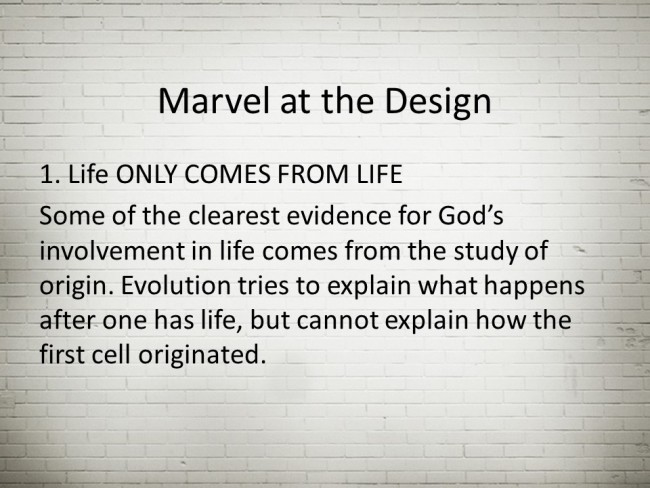
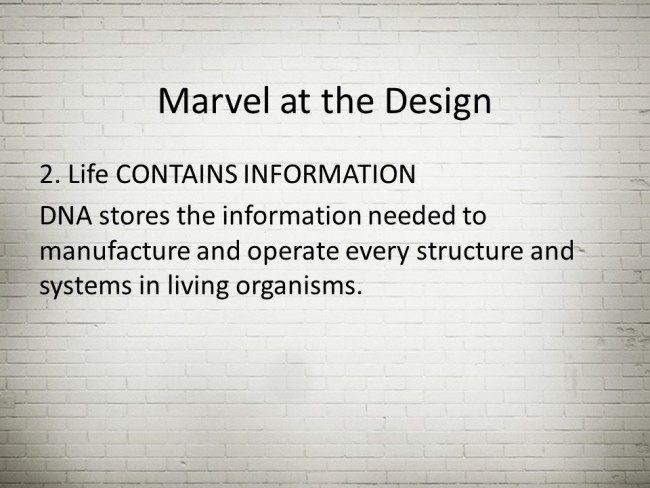
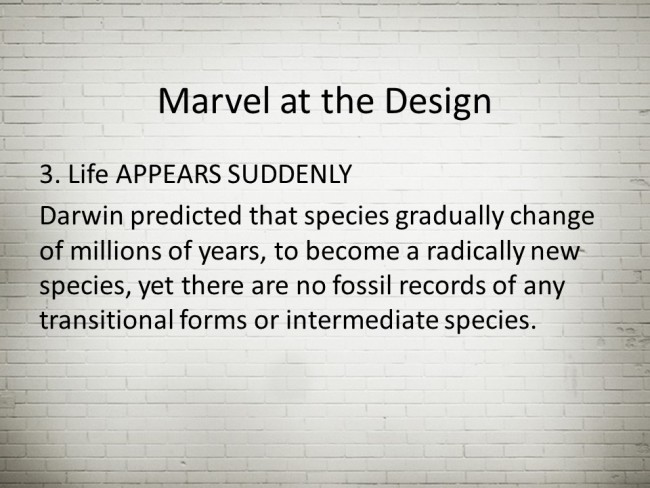
 As an example, the eye demonstrates incredible levels of sophistication for the single purpose of vision. To see properly, countess individual pieces have to be properly arranged and come together perfectly… lens, cornea, iris, retina, nerve cord connecting to the proper part of the brain. The whole system would fall apart and not work if all this is not wired up correctly.
As an example, the eye demonstrates incredible levels of sophistication for the single purpose of vision. To see properly, countess individual pieces have to be properly arranged and come together perfectly… lens, cornea, iris, retina, nerve cord connecting to the proper part of the brain. The whole system would fall apart and not work if all this is not wired up correctly.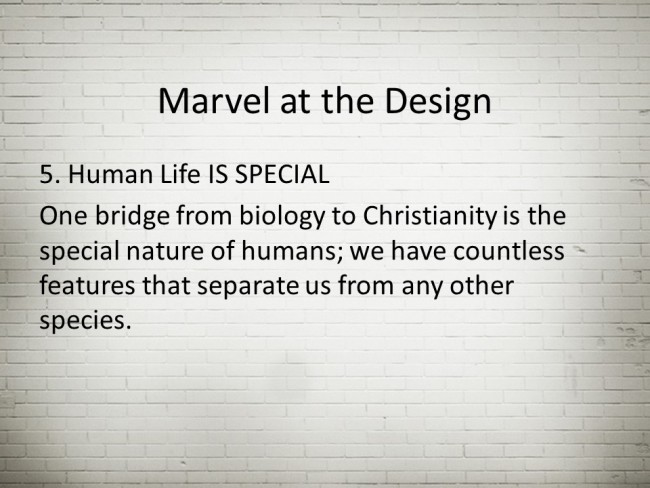
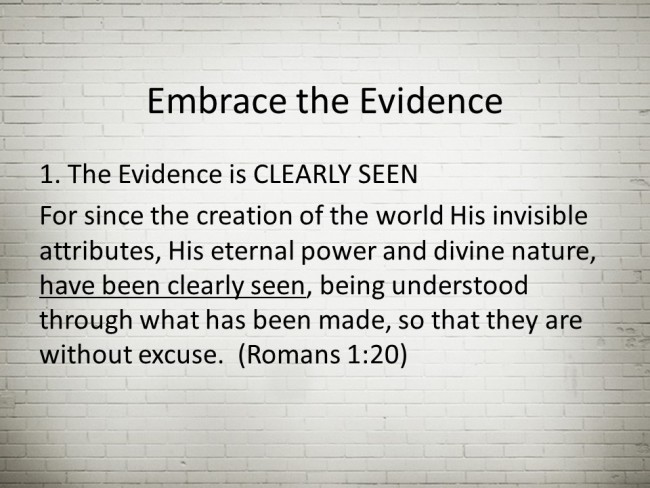

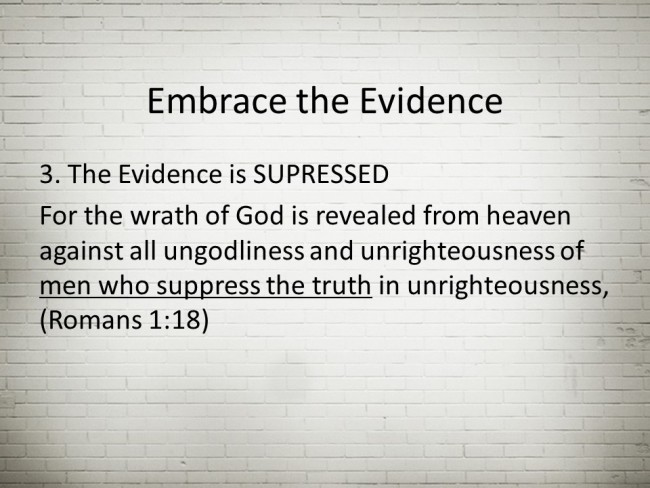
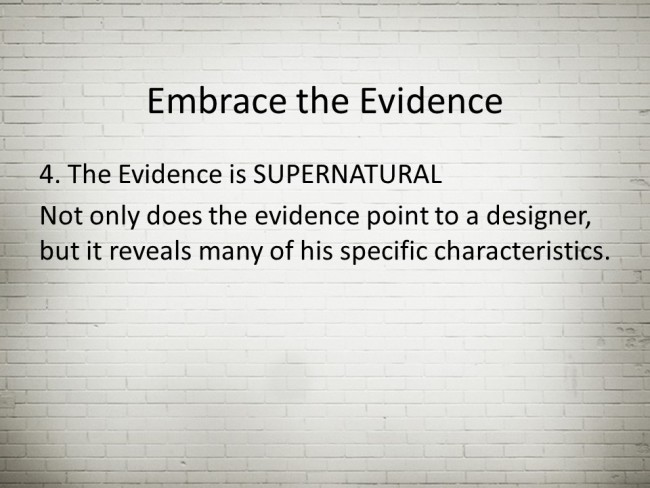

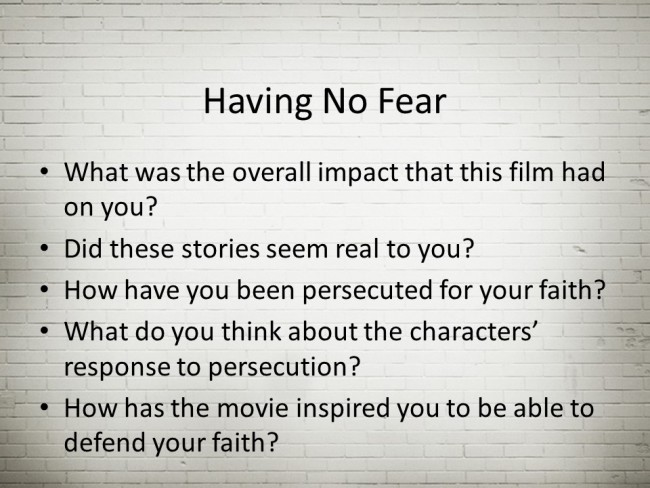 One of the major themes in the movie was that of persecution; all around the world people suffer for simply having faith in Jesus. Some would argue that the world is much more tolerant today than it was centuries ago, but the facts say otherwise. In many parts of the world, people lose freedoms; and thousands of people are killed because of their faith in Christ.
One of the major themes in the movie was that of persecution; all around the world people suffer for simply having faith in Jesus. Some would argue that the world is much more tolerant today than it was centuries ago, but the facts say otherwise. In many parts of the world, people lose freedoms; and thousands of people are killed because of their faith in Christ.